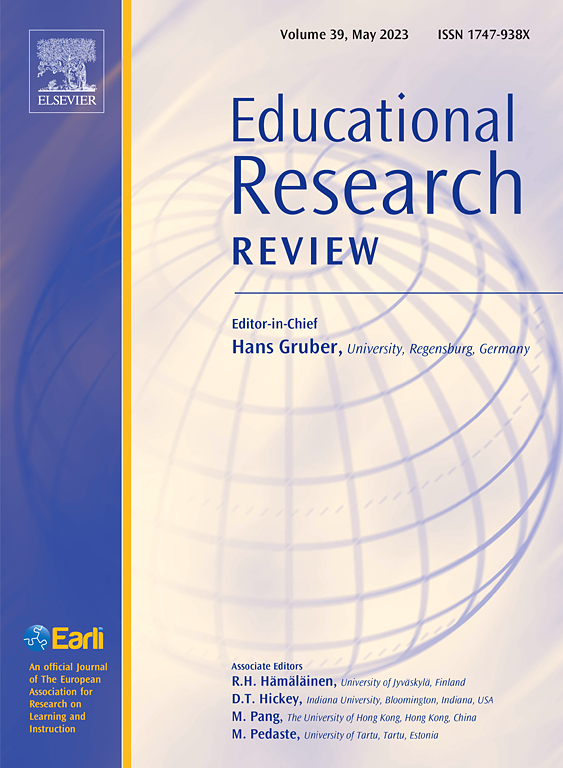Evaluating methodological quality of meta-analyses: A case study of meta-analyses on associations between parental involvement and students’ learning outcomes
IF 10.6
1区 教育学
Q1 EDUCATION & EDUCATIONAL RESEARCH
引用次数: 0
Abstract
The present study employs an umbrella review of methodological quality in 41 meta-analyses examining associations between parental involvement and students’ learning outcomes. It develops a comprehensive methodology framework for evaluating the methodological quality of meta-analyses. The framework includes different aspects from aims and conceptualization to reporting of results in meta-analyses, addressing advanced methodological topics in meta-analysis, and considering methodological reflections on limitations and suggestions for future research from meta-analysts themselves. Application of the framework to the 41 meta-analyses enables us to identify various methodological strengths and areas for improvement. The strengths comprised clear definitions of problem, comprehensive search for primary studies, reliable coding, attending to methodological quality of primary studies, reporting magnitude and variation of effect sizes, and investigating publication bias. The areas for improvement pertained to conceptual and operational definitions of key variables, transparency in searching and coding primary studies, clarifying model assumptions, handling dependent effect sizes and missing data, investigating statistical outliers, determining statistical power, use of meta-regression, providing summary tables for primary studies, and interpreting effect sizes. The study is significant in pointing the way forward for enhancing the methodological rigor of meta-analyses on parental involvement and for providing a comprehensive evaluation framework that can be used to similarly identify strengths and areas for improvement in meta-analyses in other fields.
评估统合分析的方法学质量:父母参与与学生学习成果关系的统合分析个案研究
本研究对41项荟萃分析的方法质量进行了综合评估,以检验父母参与与学生学习成果之间的关系。它为评估荟萃分析的方法学质量开发了一个全面的方法学框架。该框架包括不同的方面,从目标和概念化到元分析结果的报告,解决了元分析中的高级方法学主题,并考虑了元分析本身对局限性的方法学反思和对未来研究的建议。将该框架应用于41项荟萃分析使我们能够确定各种方法的优势和需要改进的领域。优势包括对问题的明确定义,对主要研究的全面搜索,可靠的编码,关注主要研究的方法学质量,报告效应大小的大小和变化,以及调查发表偏倚。需要改进的领域涉及关键变量的概念和操作定义、搜索和编码初级研究的透明度、澄清模型假设、处理依赖效应大小和缺失数据、调查统计异常值、确定统计能力、使用元回归、为初级研究提供汇总表以及解释效应大小。这项研究的重要之处在于,它为提高父母参与的荟萃分析方法的严谨性指明了前进的方向,并提供了一个全面的评估框架,可用于类似地确定其他领域的荟萃分析的优势和需要改进的领域。
本文章由计算机程序翻译,如有差异,请以英文原文为准。
求助全文
约1分钟内获得全文
求助全文
来源期刊

Educational Research Review
EDUCATION & EDUCATIONAL RESEARCH-
CiteScore
19.40
自引率
0.90%
发文量
53
审稿时长
57 days
期刊介绍:
Educational Research Review is an international journal catering to researchers and diverse agencies keen on reviewing studies and theoretical papers in education at any level. The journal welcomes high-quality articles that address educational research problems through a review approach, encompassing thematic or methodological reviews and meta-analyses. With an inclusive scope, the journal does not limit itself to any specific age range and invites articles across various settings where learning and education take place, such as schools, corporate training, and both formal and informal educational environments.
 求助内容:
求助内容: 应助结果提醒方式:
应助结果提醒方式:


